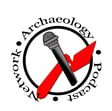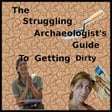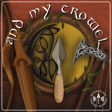
Johnny Reb Ain't Got No Ale! - Episode 8
Welcome Back Listeners! Ready for another exciting episode of The Struggling Archaeologist’s Guide to Getting Dirty?
Well get ready for our newest installment “Johnny Reb Ain’t Got No Ale!” (You guessed it, it’s our Civil War episode!)
I thought I’d do a Civil War podcast in honor of the 150th Anniversary of the Battle of Gettysburg that just passed. Would have been nice to have it out July 1,2, or 3 wouldn’t it? Well, I was on vacation so deal with it (joking, love you guys!). Better late than never right?
There’s still time to learn all about what’s going on in Civil War archaeology, from underwater excavations to prison camps to the recovery of human remains from battlegrounds such as Antietam. And if you have an opinion on the controversial practice of relic hunting then I’d like to hear it (yeah brace yourself for a bit of a lecture… no offence to my hobbyists and collectors out there!), if you’d like to share your thoughts please leave a comment on our new facebook page (https://www.facebook.com/GuidetoGettingDirty) or email me at guidetogettingdirty@gmail.com!
Oh yeah- I told you I was drinking a Chamberlain Ale and here’s my proof! And next to my favorite General’s beer is the man himself, hopefully resting in peace as my nephew and I paid our respects… If anyone ever makes it up to Brunswick, Maine make sure to check out the little cemetery next to Bowdoin College where he and his family are buried. The Chamberlain museum is directly across the street from the entrance to campus as well. Both worth a visit (yeah, Maine’s pretty cool too I guess, you might want to stay for a bit and have some lobstah!)
For some other cool pics from my travels to Chamberlain's grave, Gettysburg, and Antietam go check out this episode's original blog post
That's all for this Yankee, peace out my nerds!





